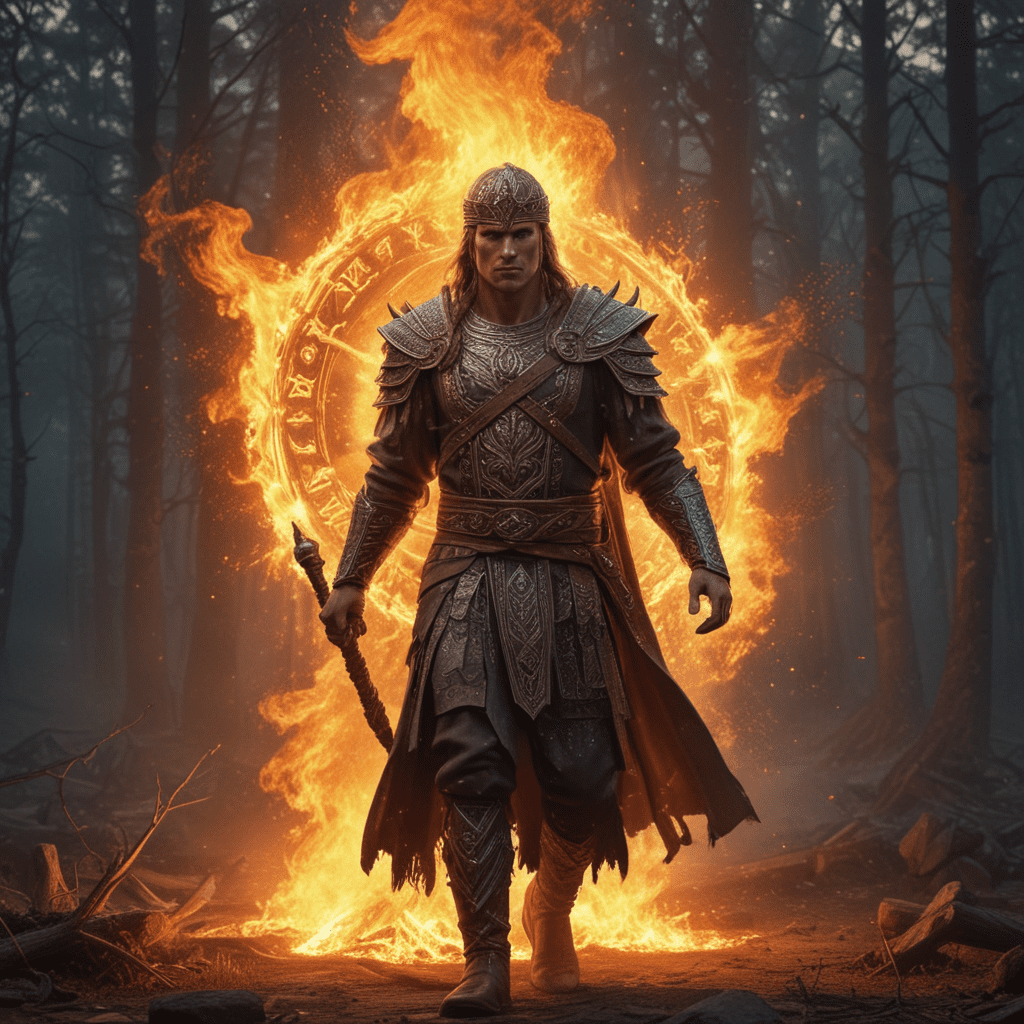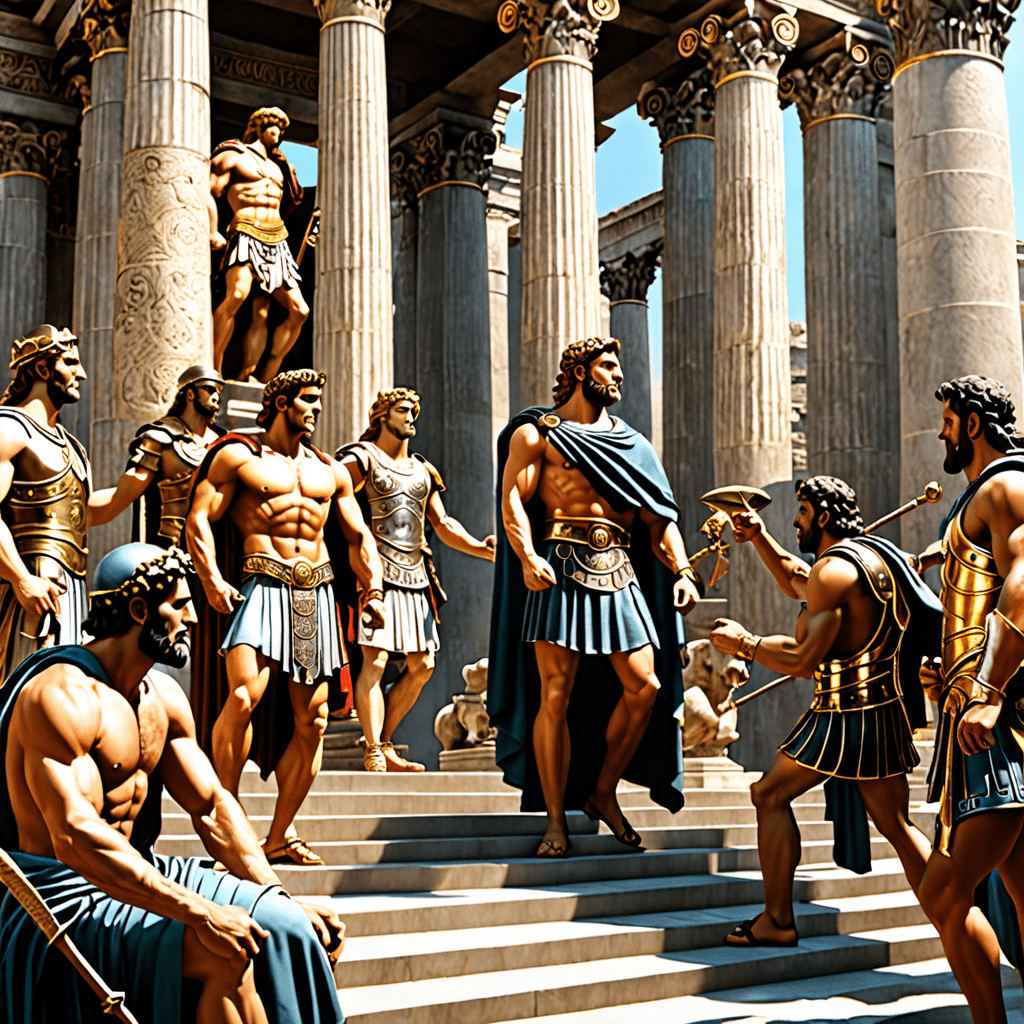Introduction: Slavic Fire Mythology
Fire has been a central element in Slavic mythology, deeply intertwined with folklore and spiritual beliefs. Slavic mythology depicted fire as a powerful force associated with both blessing and destruction, reflecting its transformative and ambivalent nature. Fire was believed to possess a sacred essence, capable of purifying, protecting, and bestowing fertility.
Fire Gods: Agni and Svarog
Slavic mythology recognized several fire deities, including Agni and Svarog. Agni, the god of fire, was worshipped for his power to bring warmth and light. He was often associated with the hearth, the center of the home and a symbol of domestic well-being. Svarog, the supreme god, was also revered as the master of fire. He was believed to have created the Sun, a celestial fire that sustains life on Earth.
Fire Demons and Spirits: Vatrasi and Kikimora
Slavic mythology also acknowledged fire demons and spirits, such as Vatrasi and Kikimora. Vatrasi, female spirits, were associated with the hearth fire. They were believed to protect the home from harm but could turn mischievous if neglected. Kikimora, on the other hand, was a malicious house spirit connected to the stove or fireplace. She was often depicted as a small, hairy creature that caused trouble by breaking dishes and frightening children.
Fire Rituals and Traditions: Kupalnitsa Night
Fire played a significant role in Slavic rituals and traditions. One notable celebration was Kupalnitsa Night, a summer festival honoring the sun and water. On this night, bonfires were lit by rivers and lakes, and people gathered to sing, dance, and jump over the flames for purification and good fortune.
Fire Symbolism in Slavic Folklore
Fire was imbued with symbolic meanings in Slavic folklore. It represented warmth, light, renewal, and protection. The hearth fire was considered a sacred place, where ancestors were said to dwell and family bonds were strengthened. Fire was also associated with purification and healing, as it was believed to possess the power to drive away evil spirits and illness.
The Role of Fire in Slavic Healing Practices
Fire played a crucial role in Slavic healing practices. Herbalists and healers used fire to prepare medicinal concoctions and fumigate the sick. Fire was also believed to have therapeutic properties, and people would often sit near a fire to relieve aches and pains. In some cases, fire was used in rituals to invoke healing powers from deities or spirits.
Fire Protection Beliefs and Superstitions
Slavs held strong beliefs about fire protection. They believed that certain objects and actions could ward off fire hazards. For instance, they placed aspen branches on rooftops to prevent lightning strikes. Additionally, they avoided sweeping the floor at night, as it was believed to bring misfortune and increase the risk of fire.
Contemporary Interpretations of Slavic Fire Mythology
In contemporary times, Slavic fire mythology continues to inspire artists, writers, and scholars. The ancient beliefs and traditions associated with fire have been reinterpreted in modern contexts, often reflecting contemporary concerns and values. For instance, the symbolism of fire as a transformative force has resonated in environmental movements, while its association with healing has found expression in alternative therapies.
FAQ
1. What was the name of the Slavic fire god?
- Agni
2. What was the name of the Slavic spirit associated with the hearth fire?
- Vatrasi
3. What is the name of the Slavic festival honoring the sun and water?
- Kupalnitsa Night
4. What is the significance of aspen branches in Slavic fire protection beliefs?
- To prevent lightning strikes



